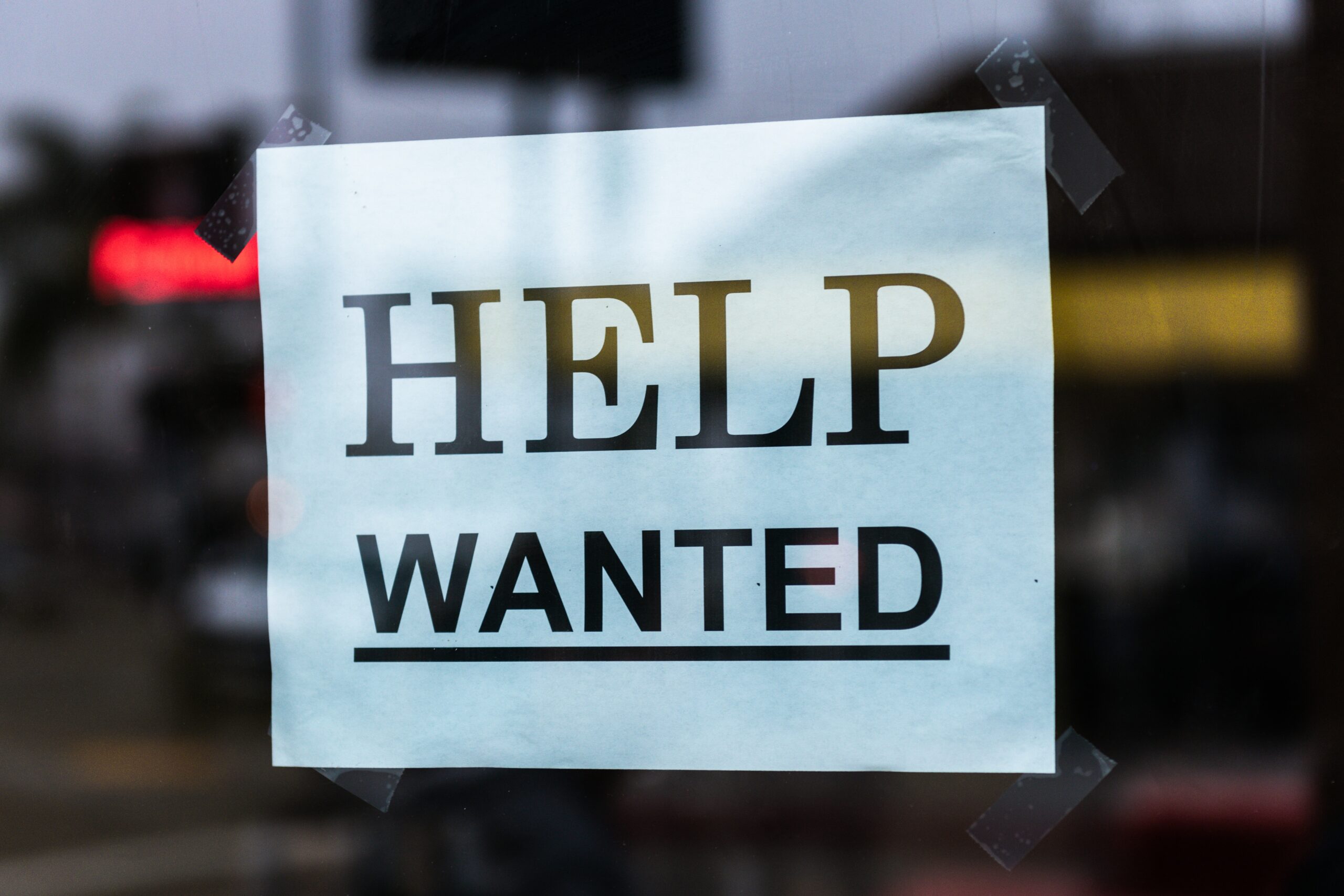The almost-post-pandemic labor shortage in the United States is a hot topic in the news right now. If you’ve driven around your town or checked Facebook groups in your area, you’ve almost certainly seen evidence of it in the form of help wanted signs and job advertisements. The federal government seems to be floundering in its attempts to address this labor shortage, while state governments are trying a variety of tactics, including ending the federal unemployment supplement early. But there is an aspect of the labor shortage nobody seems to be talking about: the critical shortage of caregivers for seniors and people with disabilities.
The direct care workforce, which includes personal care attendants, home health aides, certified nursing assistants, and other related jobs, is one of the lowest paid professions — on par with fast food jobs — despite the skill, patience, and experience required to be a good caregiver. Nationally, the pay rate for home health aides is between $10 and $17 per hour, with most in the $11-$13 range. Most do not get health insurance or other benefits. There was a shortage of direct care workers before the pandemic. It's even worse now.
Clearly, the labor shortage is complex and multifactorial — there is no single cause. But many have cited the federal unemployment supplement as the supposed reason why “no one wants to work.” The supplement provides $300 per week on top of standard unemployment benefits. Let’s look at how the unemployment supplement affects potential direct care workers who are currently not working.
In Indiana, my home state, Medicaid pays my caregivers $12.86 / hour. That's in line with if not slightly better, relatively speaking, than other states. For example, nearby Michigan only pays $9.50 to $12 / hour, and many counties in high-cost-of-living California pay $14.50, only .50 higher than that state's $14 / hour minimum wage. Looking at these numbers and the state average wages for home health aides in this chart, $13 / hour is a roughly average pay rate to use as an example. Now consider that most states pay about half your former earnings in unemployment benefits. This means if our $13/hour example caregiver was working full-time, they would have made $520 per week. Half of that is $260. Now add the $300 unemployment supplement and you can see that this worker makes more money — $40 per week more — by staying home. And that doesn't even take into account the cost of gas and other potential expenses such as childcare.
Like everything else in 2021, this “get paid more to stay home” situation has led to politically polarized responses. Conservatives are calling for an end to what they consider “free handouts,” and many Republican-majority states are withdrawing from the federal unemployment supplement program, including Texas, Tennessee, and Indiana. Liberals tend to side with the workers, pointing out that many of the currently unfilled jobs pay low wages. They argue that if employers paid fair wages, they would have no trouble finding workers.
Regardless of whether you agree with one, both, or neither of these views, politicians on both sides and the general public seem to be completely unaware of the caregiver labor shortage and the fact that it is largely perpetuated by the government. It is a problem in red states and blue states, in rural and urban areas. And even if they want to, companies and individuals trying to hire direct care workers can't raise wages, because the government decides how much they can pay.
Most people with disabilities and seniors get their care through a Medicaid waiver, a special program that provides funding for in-home support and other services. The state determines how many hours of care they get per month and the rate care providers receive. Waivers vary a lot from state to state; some states offer robust services, while others offer very few services and/or have a years-long waiting list. Very few states pay caregivers a decent wage, and only one (that I know of) allows people receiving care to set the wage. That means in 49 states, if you need care, you're stuck paying whatever the state decides you can pay, regardless of individual circumstances.
Do you want to give your dedicated, hard-working caregiver a raise after a year? Not possible. Do you need someone to work at 9 am on Christmas? Good luck with that $12 / hour you can offer. Does your child with intellectual disabilities need a caregiver with special training who knows how to calm them during behavioral outbursts? Too bad, they get paid the same amount as the worker helping Grandma cook and do laundry.
People who need to hire caregivers know the wages we are offering are inadequate, but most of the time, we can’t do anything about it. To qualify for Medicaid in most states, you have to be poor, so most seniors and disabled people in waiver programs barely get enough money to survive, let alone pay workers. A few of us are able to qualify for working disabled programs where we can earn additional income while staying on Medicaid, and some of us have financial support from family members. And if we do, we essentially have no choice but to supplement the pay of our direct care workers, because we simply can’t find qualified workers otherwise. I'm struggling to hire at $16 / hour — I can't imagine how dire it must be for those who can only pay $12.86.
The caregiver labor shortage will not be solved by ending the unemployment supplement and saying, “Go back to work, you lazy bums.” Yes, it's frustrating to be busting your butt at a low-wage, difficult job while others get paid more than you not to work. But if we all agree that working should pay more than not working, why aren't we paying those who work what they deserve? The fast food, restaurant, and retail industries are being called out for their low wages — why not state governments for how little they pay caregivers?
If people don’t want to go back to restaurant jobs at their current wages, they're not going to apply for jobs that require tasks like changing diapers and catheters, lifting heavy people, managing kids and adults during behavioral outbursts, or gently telling a dementia patient over and over that their spouse died five years ago. I don’t want to stigmatize people who need direct care — I rely on personal care aides myself — but the truth is, caregiving is often difficult work. It’s work that should pay well above the minimum wage even when there’s not a pandemic. But it's work that is generally disparaged and devalued on the rare occasions it gets any attention at all. I'm sick of hearing labor advocates say that McDonalds should pay $15 an hour while ignoring the 4.6 million direct care workers who get paid burger-flipping rates to do what should be a middle-class job requiring education and experience.
If we don’t start to value direct care work, elders and people with disabilities will pay the price. They'll become so desperate, they'll hire whoever will take the job, potentially bringing criminals, con artists, or abusers into their lives. (Been there, done that.) Or they will end up in nursing homes because they can't find caregivers, where they will still struggle to get care because nursing homes also pay horribly low wages. At home and in facilities, people will suffer and die due to lack of care.
Between the economic disruption of the pandemic and the millions of aging Boomers who will soon need support, the direct care industry is rapidly reaching a crisis point, if we’re not already there. So instead of complaining about people who don't want to work, direct that anger at the federal government and states that pay appallingly low wages to those who care for often-vulnerable seniors and disabled people. Fight for laws that tie caregiver wages to living wages and make direct care a well-paid, lifetime career option. Lives depend on it.
Photo by Tim Mossholder on Unsplash
Founder and Editor-in-Chief of The Ability Toolbox. I received my BA in English from Stanford University and MA in Clinical Psychology from Antioch University Los Angeles, and have worked in entertainment and health media for over 20 years. I also blog about traveling with a disability. As a wheelchair user with cerebral palsy, I am deeply committed to amplifying the voices of the disability community through writing and advocacy.







